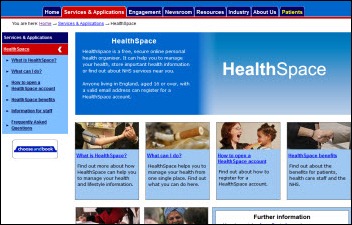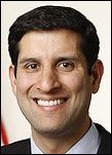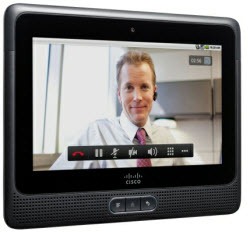Today's post contains the phoenixes rising from the ashes of the post COVID telehealth era. There's two things that destroy…
News 5/30/12

In the UK, NHS says it will shut down its HealthSpace personal health record by March 2013. The Department of Health director says the system attracted few users, which he says is because, “It is too difficult to make an account. It is too difficult to log on. It is just too difficult.” A 2010 report commissioned by the government said it was failing for the reasons that government-run software projects usually fail: poor project oversight, lack of ability to define standard datasets, poorly defined consent practices, and contractors looking out for their own interests. I found this comment fascinating and relevant to other clinical IT system deployments:
The fortunes of the SCR and HealthSpace programmes appeared to turn partly on the philosophical question “Where is the wisdom we have lost in knowledge?”. Many though not all senior stakeholders in CFH, the professions and the IT industry viewed knowledge as stable and discrete data items which could be extracted from their context, placed on the SCR and transmitted to new people and contexts while retaining meaning. An alternative perspective holds that much knowledge is tied to particular people, organisations, experiences and practices and is difficult if not impossible to extract from its context or the people who know it.
Reader Comments

From Period Piece: “Re: hospital pricing article. Cash is king.” The LA Times covers the seldom-discussed topic of hospitals offering lower prices to cash-paying patients. Its lead example is a hairdresser who pays $700 per month for medical insurance and who was charged $6,707 for a CT scan, of which her share after insurance was $2,336, but had she just written the hospital a check, she would have paid only $1,054. Another hospital lists the same test at $4,423, the Blue Cross Blue Shield negotiated price is $2,400, and the cash price is $250. Says the patient, “I was really upset that I got charged so much and Blue Shield allowed that. You expect them to work harder for you and negotiate a better deal … it kills me that I’m paying that much in premiums and it’s better to pay cash out of my own pocket.” In yet another example, a doctor ordering blood work for his patient found that the hospital charges $782, the insurance company billed the patient for $415, but the patient’s cash price would have been $95. Like everything related to hospital charges, there’s even a catch to paying cash: you have to lie upfront in saying that you don’t have insurance since hospitals won’t give the cash discount otherwise since they don’t allow price cherry-picking, although they may offer a cash discount on the insurance company’s negotiated price. The hospital’s Robin Hood-like explanation: insured patients have to pay more to cover the underpayment of Medicare and charity care. The hairdresser is suing Blue Shield and seeking class action status, but the insurance company says it doesn’t guarantee that providers won’t undercut its negotiated prices for cash-paying patients (in other words, they’re making a fortune on administrative skim and premium-raising and thus have no incentive to worry about what their customers are paying providers.) Here’s the thing about medical insurance: both patients and providers would be better off without it other than for its coverage of catastrophic events, which of course is what it was supposed to be in the first place until it morphed into the borderline socialist “health insurance” that used to pay for everything, but now pays less and less even as medical costs increase and patient rebel at the idea of being responsible for their own healthcare expenses.
From Pico D’Gallo: “Re: Duke. Their cost for implementing Epic was announced at $700 million over seven years, surely a record.” Verified, at least the $700 million part — I found a link here.
HIStalk Announcements and Requests
![]() Based on the success of the HIStalk Advisory Panel, we want to add a separate HIStalk Practice Advisory Panel for practicing physicians and others working in the ambulatory space. Every month or so we’ll e-mail 3-4 questions pertaining to product issues or needs, cool technology that you might be using in your practice, and other issues affecting physician offices. If you have a few minutes every so often to participate, please drop me an e-mail. Many thanks!
Based on the success of the HIStalk Advisory Panel, we want to add a separate HIStalk Practice Advisory Panel for practicing physicians and others working in the ambulatory space. Every month or so we’ll e-mail 3-4 questions pertaining to product issues or needs, cool technology that you might be using in your practice, and other issues affecting physician offices. If you have a few minutes every so often to participate, please drop me an e-mail. Many thanks!
Thanks to HealthCare Anytime, joining HIStalk as a Platinum Sponsor. The San Diego-based company offers a cloud-based patient self-service portal (online bill pay, recurring payments, once-time payments by telephone, appointments, pre-registration, secure messaging, refills, and PHR) that gets providers paid faster and makes their operation more efficient. Of course, patients like it too – who wouldn’t, compared to playing time-wasting telephone tag and jotting down indecipherable notes about balances and appointments? The portal helps providers meet two key Meaningful Use Stage 2 requirements: allowing patients to view/download their information and actually exchanging secure messages with at least 10% of them. The company has been around since 2000 and is run by Steve Click (founder and former CEO of Dairyland, now Healthland) and Brady Click (CEO of Intelligent Health Systems and founder of HealthCare Anytime.) The company is at MUSE in Orlando this week if you’d care to drop by Booth 207 to say hello. Tell them you saw them mentioned on HIStalk – sponsors love that tangible manifestation of their support. Thanks to HealthCare Anytime for supporting HIStalk.
I trolled YouTube to see if there were any videos about HealthCare Anytime and, what do you know, here’s a just-posted two-minute overview of their patient portal. I’m usually not that lucky, mostly because not all companies have caught on to the marketing value of posting videos on YouTube or Vimeo.
I can’t believe I’m saying this, but I’m getting kind of excited about Windows 8. I’m hoping it’s an easy and cheap upgrade, but the “cheap” part is negotiable with me – I don’t mind paying for an OS that’s more stable and functional (but I wouldn’t use Internet Explorer even if you paid me.) History has shown a predictable “every other Windows release sucks” pattern going back to Windows for Workgroups, so I’ll believe Microsoft has regained its long-lost relevancy and reputation for innovation if they can break that pattern. If not, Steve Ballmer needs to be fired immediately and I may go with a Mac since the Win 8 team appears to have stolen liberally from the Mac OS anyway. I’m interested in the announcements from WWDC (Apple’s developer conference, probably the most-watched conference in the world) in a couple of weeks, the first without Steve Jobs.
Acquisitions, Funding, Business, and Stock
In the UK, McKesson hires a lobbying company to help it earn IT business following the demise of the government’s NPfIT project. McKesson, which wasn’t a successful bidder in that project, can now sell directly to individual hospital trusts.
Sales
The National Institutes of Health awards Evolvent Technologies a 10-year contract to provide IT services and solutions for the NIH IT Acquisition and Assessment Center. The contract’s ceiling value is $20 billion.
Australia’s Austin Health and the Center for Ambulatory Surgery (NY) select ProVation by Wolters Kluwer Health for GI coding and documentation.
In the UK, Surrey and Sussex Healthcare NHS Trust votes to not only stick with the NPfIT-provider Cerner Millennium, but to extend its contract and add on the RadNet radiology information system. The trust is also seeking a PACS.
David Miller, vice chancellor and CIO of University of Arkansas for Medical Sciences, tells me that the organization has approved an $87 million Epic implementation. They expect to save $10 million per year in clinical improvements and $2 million in reduced software maintenance costs. Upgrading existing systems to meet Meaningful Use requirements would have cost $24-30 million.
LongView International Technology solutions wins a $300 million Military Health System contract to develop proof-of-concept applications that may have something to do with the joint DoD-VA EMR (the announcement doesn’t really say). The company also recently won part of another $20 billion contract. The five-year-old company was started by a retired Navy officer with an MS in hospital administration who had been assigned to the Secretary of Defense to manage a $20 billion appropriation (hopefully not the same one his company won.)
People
Imprivata names Mark Clark (Hitachi Data Systems) as VP of international sales, based in London.
Andrew Terry is named VP of software engineering at electrophysiology lab software vendor Perminova. He was previously with Sotera Wireless.
Announcements and Implementations
Krames StayWell makes its library of discharge instructions available to Meditech customers.
The HealthBridge HIE (OH) announces the go-live of its ED Admit Alert System, which lets physicians know when their patient visits the ED or is admitted.
MediServe announces that its MediLink for Outpatients solution will support recent changes to therapy caps for hospital-based outpatient therapy services.
The White House invites Iatric Systems to participate in the June 4 Patient Access Summit, where it will be one of 25 invited participants. Facilitating the event will be US CTO Todd Park, National Coordinator Farzad Mostashari, and VA CTO Peter Levin.
Image sharing network vendor lifeIMAGE anounces release of programming APIs that will allow software developers to enable image sharing directly from their applications. The announcement cites an unnamed academic medical center’s use of the API to send images from access management systems to Epic and to allow its employees to populate WebMD’s PHR with their images. I interviewed President and CEO Hamid Tabatabaie awhile back and learned a lot about the state of image sharing.
Former US CIO Vivek Kundra, now with Salesforce.com, takes a shot at the IT establishment, which he says is stifling innovation. “There are these evil CIOs that everyone hates because they’re the ones that tell you ‘you can’t bring technology to your workplace.’ They represent the greatest threat not just to innovation, but also to citizens getting the services they want.”
Under fire: the Affordable Care Act’s 2.3% excise tax on the gross sales of medical devices, set to kick in next year but facing increasing Congressional resistance. At least if you believe the WSJ article, which seems to be partisan in the Republican direction (read the article comments for fun).
Innovation and Research

The CareFusion Foundation awards a $329K grant to the Healthcare Technology Safety Institute to study smart IV pump errors. Brigham and Women’s will coordinate the efforts of 10 hospitals in observing smart pump use to find problems, then identify possible solutions. The institute is part of the biomed-intensive, non-profit Association for the Advancement of Medical Instrumentation, which has worked with FDA on issues related to IV pump safety.
Technology
![]() Epic authorizes implementations of its EHR on Intel x86 servers running open-source Linux, virtualized to VMware. Previously Epic ran exclusively on AIX and UNIX servers. This should make Epic a bit less expensive and perhaps more attractive to smaller facilities, though hardware is a minor part of the Epic implementation budget. Awhile back we ran a rumor that Epic was looking at the open source equivalent to Cache, so this might be a signal that they are looking for less proprietary and less expensive ways to run their systems.
Epic authorizes implementations of its EHR on Intel x86 servers running open-source Linux, virtualized to VMware. Previously Epic ran exclusively on AIX and UNIX servers. This should make Epic a bit less expensive and perhaps more attractive to smaller facilities, though hardware is a minor part of the Epic implementation budget. Awhile back we ran a rumor that Epic was looking at the open source equivalent to Cache, so this might be a signal that they are looking for less proprietary and less expensive ways to run their systems.
Cisco kills off its Cius tablet for businesses less than two years after it was launched, born back when the original iPad wasn’t all that robust and businesses were expected to buy enterprise-grade tablets instead of succumbing to pressure from their employees to be allowed to bring in their own far cooler tablets. It’s bad enough to be trying to move non-Apple tablets, but you are toast if yours is more expensive besides (the Cius was $700).
Other
South Shore Hospital (MA) will pay $750,000 to settle charges related to a 2010 data breach that compromised the personal data of 800,000 people. The hospital contracted with Archive Data Solutions to erase and resell 473 data tapes, but failed to encrypt the data and didn’t tell the vendor that the tapes contained PHI. The vendor shipped the tapes to a subcontractor to do the work and two of the three boxes were lost.
A UK doctor accused of killing two elderly patients by ordering tenfold overdoses of morphine is acquitted of manslaughter. He admitted that he made a mistake in prescribing the drugs while he was reading e-mail and checking online cricket scores.
Also in the UK, a hospital launches an urgent investigation after a patient complains that an exam light wasn’t working when the doctor was trying to stop her post-delivery bleeding, leading him to order the nurse to hold up his iPhone so he could work from its light. Says the patient, “Then the doctor and nurse had a bit of an altercation when the light went off, as she didn’t know how to do the finger swish thing to keep turning it on, and he… felt she wasn’t listening to his instructions.”
Weird News Andy says this took guts, but he urges police to add practicing surgery without a license to the charges. Police responding to the home of a New Jersey man who was threatening to harm himself with a 12-inch kitchen knife find him barricaded in his room, and when they kick the door down, the man stabs himself repeatedly in the abdomen and throws skin and parts of his intestines at the officers. The man, who has a history of psychiatric problems, is hospitalized in critical condition.
Sponsor Updates
- AT&T Health sponsors a June 5 Webinar discussing the creation of an enterprise image management strategy in the cloud.
- Bloomberg Businessweek profiles Digital Prospectors Corp.
- Capsule will showcase its device integration solution a this week’s International MUSE 2012 Conference.
- Newfoundland and Labrador Centre for Health Information selects Orion Health to provide framework for its providence-wide interoperable EHR.
- SCI opens registration for its Client Innovation Summit 2012, to be held October 21-24 at Chateau Élan in Braselton, GA.
Contacts
Mr. H, Inga, Dr. Jayne, Dr. Gregg.
More news: HIStalk Practice, HIStalk Mobile.












re: the $700 million record Epic install. Wasn’t Kaiser’s over a billion? In fact, wasn’t it $4 billion? Did I misunderstand what you meant?
[From Mr H] Kaiser’s HealthConnect cost was supposedly over $4 billion, but a lot of that was infrastructure like regional data centers for their huge geographic footprint and mammoth size. I don’t know the bed count, but I think I read somewhere that KP as 8,000 beds and Duke has maybe 1,400, so that’s about $500K per bed in both cases. I wouldn’t consider Kaiser a good comparison for healthcare in general.
I’m sorry, but the math on the University of Arkansas Epic deal doesn’t work.
Monetary Cost of Epic: -$87 million
Clinical Savings from Epic: +10 million
Software Savings from Epic: + 2 million
Total Cost of Epic: $75 million
Worst case cost of upgrading other software: $30 million
Difference between installing Epic and upgrading the current stuff: $45 million.
Or roughly $97.15 per resident of Fayetteville AK’s metropolitan area. Hard to believe that Epic (or any system that is currently on the market) will provide that much value over the upgrades to the currently installed stuff especially when measured on a per capita basis.
I love computers, but on a dollar for dollar basis, it seems basic healthcare wins any day (even in a country as well off as the US).
[From Mr. H] The clinical and software savings were yearly, while the $87 million was a one-time cost. If all that works out to be accurate, Epic would pay for itself it 7 years.
Reluctant Epic User and Mr. H – when you include Depreciation and the technology refreshes and upgrades, that level of savings will produce no return within a 20 year horizon. That is the reality. If I were on the Board, I’d push for a stronger business case. It can be made. I remember their CIO being interviewed. He said they were a heavy best-of-breed shop with Eclipsys, McKesson, and GE.
If you can’t integrate your systems, you will have an incredibly difficult hill to climb as one considers the future of bundled payments, continued penalty-based “incentives” from CMS, the principles of accountable care and more-and-more quality measures. Trying to align data standards among three big vendors is a major challenge.
It’s truly amazing how hospitals can plunk down that kind of capital expenditure without a detailed analysis of what they get for their money. The first thing I have to wonder is how much beyond the $87 million will it actually cost to get the Epic system up and running? After all, Duke spent $700 million, and UAMS isn’t 10x more efficient (or 1/10th the size) of Duke. $10 million/year in clinical improvements also sounds absurd – is it $10 million more than they would’ve annually gotten by doing the upgrade? Is their hospital so poorly run at the moment that their current EMR is leaving $10 million/year in savings on the table? Where does Epic specifically generate this $10 million per year in efficiencies above and beyond either current or upgraded EMR state? Could they have bought another EMR altogether, at a fraction of the price, and still attained the same clinical efficiencies? This number sounds imaginary to me and will never be realized. I can somewhat believe the reduced maintenance costs in going from best of breed to single vendor and maintaining fewer interfaces, but I have a feeling this is a bit of an inflated number passed along by Epic salespeople. The reality is that Epic is not cheap to operate, even if there are fewer interfaces involved. This all just sounds like a poorly built financial argument to justify what amounts to a questionable capital expenditure – all too often par for the course for hospital management.